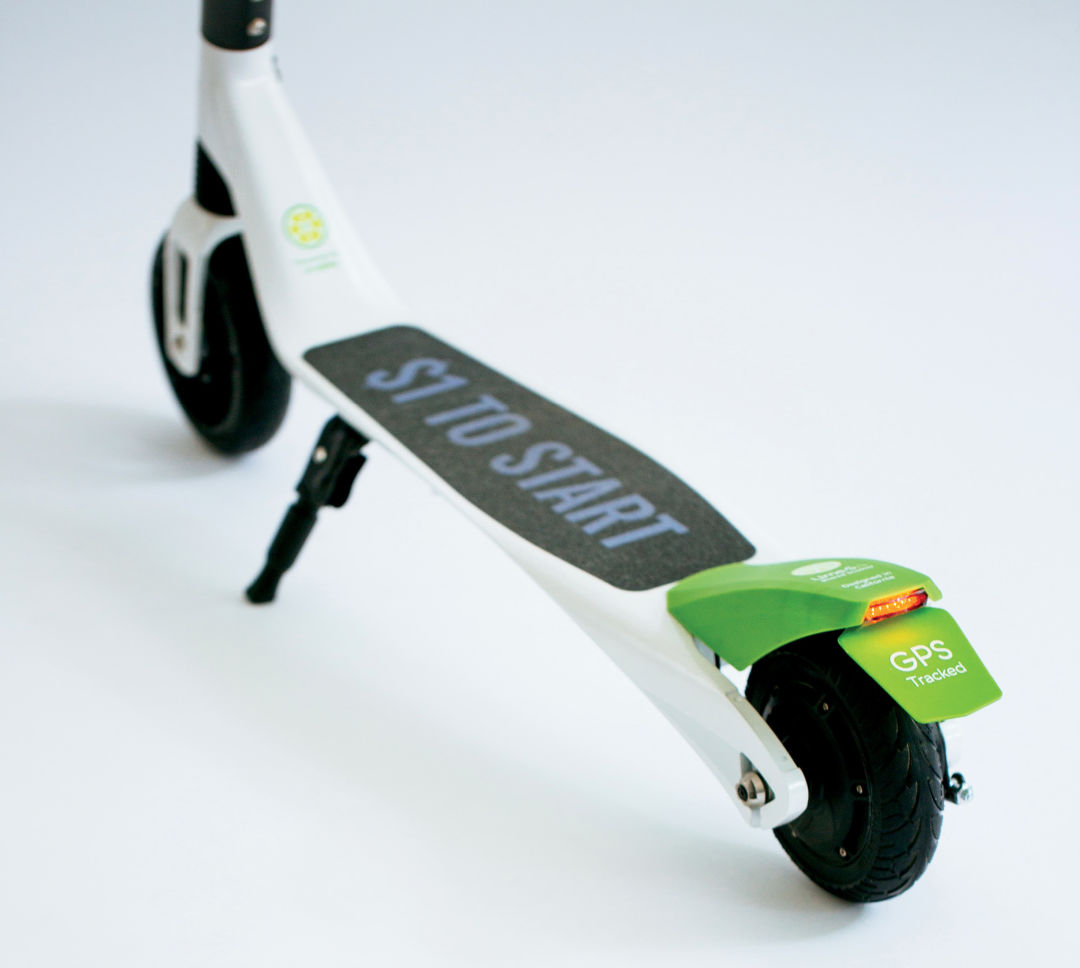Portland's E-Scooter Invasion Has Begun

Image: Courtesy Limebike
Portland is the latest guinea pig for a hot new mode of transportation: electric scooters. On May 29, the Portland Bureau of Transportation sent a letter to five different e-scooter companies—LimeBike, Bird, Spin, Skip, and Goat (these are the kind of names scooter companies have, evidently)—announcing plans for a 120-day pilot project that started last week. The project puts as many as 2,500 scooters on the street, each available for app-enabled checkout for a spin around town.
Elsewhere, e-scooter programs have been controversial at best, utter train wrecks at worst. In San Francisco this past March, residents woke up to hundreds of Bird, Spin, and LimeBike scooters parked all around the city—blocking bike lanes, wheelchair ramps, and sidewalks. (Unlike, say, Biketown bikes, e-scooters typically can be left leaning or lying on sidewalks.) The city responded by issuing cease-and-desist letters and starting an official pilot program, requiring companies to get permits to continue operation.
“We’re taking a deliberate and proactive approach,” says Dylan Rivera, a PBOT spokesperson, “to make sure that if these companies offer e-scooters in Portland, it’s done in a way that protects public safety and public access.”
The bureau requires participating companies to report on and mitigate effects on pedestrian safety and access for people with disabilities, as well as provide anonymized data about trip origin, destination, and length. However, some of the biggest hurdles have yet to be solved. Oregon state law requires e-scooter riders wear helmets and stick to roadways and bike lanes—not sidewalks. If other cities’ experiences are any indication, many riders—especially uninformed tourists—will fail to follow these guidelines.
“We’re trying to think through enforcement,” says Rivera, “whether it’s police, parking enforcement officers, or the PBOT.”
Even with the obvious risks and complexities, there are potential upsides. Sanjay Dastoor, the CEO of Skip Scooters, hopes the program will make a dent in Portland’s increasingly nightmarish daily traffic.
“A scooter sharing program can relieve some of the pressure [of congestion],” explains Dastoor. “And we’re creating jobs locally for managing the fleet and rider support. It improves the community.”
Data provided by the companies and feedback from the community will determine whether PBOT approves further e-scooter programs after the four-month trial run. In the meantime, riders, STAY OFF THE SIDEWALKS!
By the Numbers
Nov 20
Date the city’s 4-month pilot program ends
15 mph
Top allowable speed
16
Minimum age of riders
20%
Share of fleet required to be in East Portland
$1.60
Average cost, for the user, of a 1-mile trip
$6–8
Average cost of a 1-mile Uber/Lyft trip
20–30
Average range (in miles) of an electric scooter on a single charge
2,500
Total scooters allowed during the pilot project—compared to 1,000 Biketown bikes




